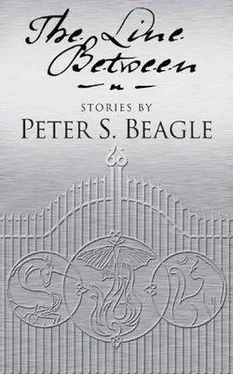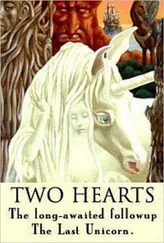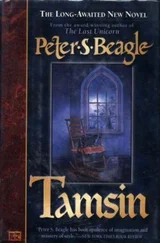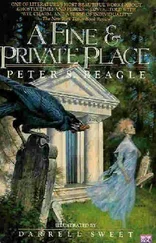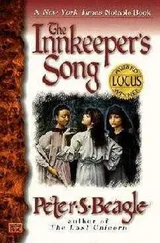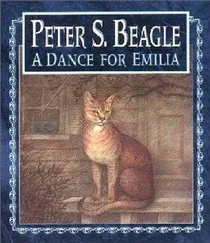Peter Beagle - The Line Between
Здесь есть возможность читать онлайн «Peter Beagle - The Line Between» весь текст электронной книги совершенно бесплатно (целиком полную версию без сокращений). В некоторых случаях можно слушать аудио, скачать через торрент в формате fb2 и присутствует краткое содержание. Жанр: Фэнтези, на английском языке. Описание произведения, (предисловие) а так же отзывы посетителей доступны на портале библиотеки ЛибКат.
- Название:The Line Between
- Автор:
- Жанр:
- Год:неизвестен
- ISBN:нет данных
- Рейтинг книги:5 / 5. Голосов: 1
-
Избранное:Добавить в избранное
- Отзывы:
-
Ваша оценка:
- 100
- 1
- 2
- 3
- 4
- 5
The Line Between: краткое содержание, описание и аннотация
Предлагаем к чтению аннотацию, описание, краткое содержание или предисловие (зависит от того, что написал сам автор книги «The Line Between»). Если вы не нашли необходимую информацию о книге — напишите в комментариях, мы постараемся отыскать её.
The Line Between — читать онлайн бесплатно полную книгу (весь текст) целиком
Ниже представлен текст книги, разбитый по страницам. Система сохранения места последней прочитанной страницы, позволяет с удобством читать онлайн бесплатно книгу «The Line Between», без необходимости каждый раз заново искать на чём Вы остановились. Поставьте закладку, и сможете в любой момент перейти на страницу, на которой закончили чтение.
Интервал:
Закладка:
I don't know when Andrichev found out, nor how. I cannot even say how we all suddenly knew that he knew, for his shy, growling, but essentially kindly manner seemed not to change at all with the discovery. The music told us, I think — it became even fiercer, more passionate — angrier, in short, even during what were meant to be singing legato passages. I refuse to believe, even now, that any member of the Greater Bornitz Municipal Orchestra would have informed him. We were all fond of him, in our different ways; and in this part of the world we tend not to view the truth as an absolute, ultimate good, but as something better measured out in a judiciously controlled fashion. It could very well have been one of his wife's friends who betrayed her — even one of her playmates with a drink too many inside him, I don't suppose it matters now. I am not sure that I would want to know, now.
In any event, this part of the world offers certain traditional options in such a case. A deceived husband has the unquestioned right — the divine right, if you like — to beat his unfaithful wife as brutally as his pride demands, but he may not cut her nose or ears off, except perhaps in one barbarous southern province where we almost never perform. He may banish her back to her family — who will not, as a rule, be at all happy to see her — or, as one violist of my acquaintance did, allow her to stay in his home, but on such terms … Let it go. We may play their music, but we are not altogether a Western people.
But Andrichev did none of these things. I doubt seriously that he ever confronted Lyudmilla with her infidelity, and I know that he never sought out any of her lovers, all of whom he could have pounded until the dust flew, like carpets on a clothesline. More and more withdrawn, drinking as he never used to, he spent most of his time at practice and rehearsal, clearly taking shelter in Brahms and Tschaikovsky and Grieg, and increasingly reluctant to go home. On several occasions he wound up staying the night with one Grigori Progorny — our fourth cellist, a competent enough technician and the nearest he had to an intimate — or with me, or even sprawled across three chair's in that cold, empty beer–hall, always clutching his cello fiercely against him as he must have been used to holding his wife. None of us ever expressed the least compassion or fellow–feeling for his misery. He would not have liked it.
Sigerson was perfectly aware of the situation — for all his air of being concerned solely with tone and tempo and accuracy of phrasing, I came to realize that he missed very little of what was going on around him — but he never commented on it; not until after a performance in the nearby town of Ilyagi. Our gradually expanding
repertoire was winning us both ovations and new bookings, but I was troubled even so. Andrichev's playing that evening had been, while undeniably vigorous, totally out of balance and sympathy with the requirements of Schubert and Scriabin, and even the least critical among us could not have helped but notice. On our way home, bumping and lurching over cowpaths and forest trails in the two wagons we still travel in, Sigerson said quietly, «I think you may have to speak with Mr. Andrichev.»
Most of the others were asleep, and I needed to confide in someone even the chilly Mr. Sigerson. I said, «He suffers. He has no outlet for his suffering but the music. I do not know what to do, or what to say to him And I will not discharge him.»
Surprisingly, Sigerson smiled at me in the pitch darkness of the wagon A shadowy, stiff smile, it was, but a smile nevertheless. «I never imagined that you would, Herr Takesti. I am saying only — " and here he hesitated for a moment, " — I am saying that if you do not speak to him, something perhaps tragic is quite likely to happen. What you may say is not nearly as important as the fact that he knows you are concerned for him. You are rather a forbidding person, concertmaster.»
"/?» I demanded. I was absolutely stunned. «I am forbidding? There is no one, no one, in this orchestra who cannot come to me — who has not come to me — under any circumstances to discuss anything at all at any time. You know this yourself, Herr Sigerson.» Oh, how well I remember how furious I was. Forbidding, indeed — this from him!
The smile only widened; it even warmed slightly. «Herr Takesti, this is perfectly true, and I would never deny it. Anyone may come to you, and welcome — but you do not yourself go out to them. Do you understand the difference?» After another momentary pause, while I was still taking this in, he added, «We are more alike than you may think, Herr Takesti.»
The appalling notion that there might be some small truth in what he said kept me quiet for a time. Finally I mumbled, «I will speak to him. But it will be no help. Believe me, I know.»
«I believe you.» Sigerson's voice was almost gentle — totally unnatural for that querulous rasp of his. «I have known men like Andrichev, in other places, and I fear that the music will not always be outlet enough for what is happening to him. That is all I have to say.»
And so it was. He began humming tunelessly to himself, which was another annoying habit of his, and he was snoring away like the rest by the time our horses clumped to a stop in front of their stable. Everyone dispersed, grumbling sleepily, except Andrichev, who insisted on sleeping in the wagon, and grew quite excited about it. He would have frozen to death, of course, which may well have been what he wanted, and perhaps a mercy, but I could not allow it. Progorny eventually persuaded him to come home with him, where he drank mutely for the rest of the night, and slept on the floor all through the next day. But he was waiting for me at
rehearsal that evening.
What are you expecting? I must ask you that at this point. Are you waiting for poor Herr Andrichev to kill his wife — to stab or shoot or strangle the equally pitiable Lyudmilla Plaschka — or for her to have him knocked on the head by one of her lovers and to run off with that poor fool to Prague or Sofia? My apologies, but none of that happened. This is what happened.
It begins with the cello: Andrichev's Fabregas, made in Lisbon in 1802, not by Joao, the old man, but by his second son Antonio, who was better. One thinks of a Fabregas as a violin or a guitar, but they made a handful of cellos too, and there are none better anywhere, and few as good; the rich, proud, tender sound is surely unmistakable in this world. And what in God's own name Volodya Andrichev was doing with a genuine Fabregas I have no more idea than you, to this day. Nor can I say why I never asked him how he came by such a thing — perhaps I feared that he might tell me. In any event, it was his, and he loved it second only to Lyudmilla Plaschka, as I have said. And that cello, at least, truly returned his love. You would have to have heard him, merely practicing scales in his little house on a winter morning, to understand.
So, then — the cello. Now, next — early that fall, Lyudmilla fell ill. Suddenly, importantly, desperately ill, according to Progorny; Andrichev himself said next to nothing about it to the rest of us, except that it was some sort of respiratory matter. Either that, or a crippling, excruciating intestinal ailment; at this remove, such details are hard to recall, though I am sure I would be able to provide them had I liked Lyudmilla better. As it was, I felt concern only — forgive an old man's unpleasant frankness — for Andrichev's concern for her, which seemed in a likely way to destroy his career. He could not concentrate at rehearsal; the instinctive sense of cadence, of pulse, that was his great strength, fell to ruin; his bowing went straight to hell, and his phrasing — always as impulsive as a fifteen–year–old in June — became utterly erratic, which, believe me, is the very kindest word I can think of. On top of all that, he would instantly abandon a runthrough — or, once, a performance! — because word had been brought to him that Lyudmilla's illness had taken some awful turn. I could have slaughtered him without a qualm, and slept soundly afterward; so you may well imagine what I thought of Lyudmilla Plaschka Murderous fancies or not, of course I favored him. Not because he suffered more than she — who ever knows? — but because he was one of us. Like that — like us. It comes down to that, at the last.
Читать дальшеИнтервал:
Закладка:
Похожие книги на «The Line Between»
Представляем Вашему вниманию похожие книги на «The Line Between» списком для выбора. Мы отобрали схожую по названию и смыслу литературу в надежде предоставить читателям больше вариантов отыскать новые, интересные, ещё непрочитанные произведения.
Обсуждение, отзывы о книге «The Line Between» и просто собственные мнения читателей. Оставьте ваши комментарии, напишите, что Вы думаете о произведении, его смысле или главных героях. Укажите что конкретно понравилось, а что нет, и почему Вы так считаете.
